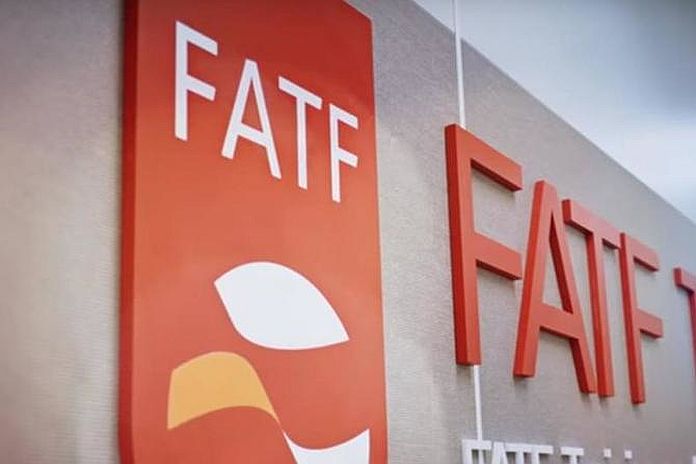GEORGE TOWN, Cayman Islands, (CNS) – The Cayman Islands has finally been removed from the Financial Action Task Force(FATF) anti-money laundering “grey list” after more than two years of trying. The jurisdiction was listed in February 2021 due to a failure to successfully prosecute or sanction those involved in financial crime. FATF announced the decision to de-list Cayman following the 25-27 October plenary in Paris.
Financial services minister André Ebanks, who was in Paris for the session, said it had taken two years of sustained hard work and engagement, locally and internationally, with the public and private sectors working together since the FATF grey listing in 2021.
“Team Cayman faced this challenge with faith, competence and dedication,” he said. “We had a shared determination to step out from under this shadow as soon as possible, and today, we have done exactly that… Compliance with the FATF standard helps protect all of us as we conduct everyday business, whether that’s banking, purchasing local goods, or donating to charities.”
This completes Cayman’s participation in FATF’s 4th-Round Mutual Evaluation process. The 5th Round process starts in 2025, with Cayman expecting its evaluation in 2026.
Attorney General Samuel Bulgin said officials are monitoring and anticipating changes to the FATF standard and evaluation methodology to ensure local policies and legislation align. They are also “monitoring changes to the FATF evaluation methodology, to assess how best to demonstrate the Cayman Islands’ effectiveness in implementing the standard”.
Bulgin and the minister said that lessons learned during FATF’s 4th Round are guiding preparations for the next round.
No one has ever confirmed why Cayman was unprepared for the listing, given the specific concerns about the detection of financial crime.
Bulgin, who plays a key role in maintaining the AML regime, said the importance of the removal could not be understated. “FATF’s decision confirms that our AML regime effectively deters, detects, arrests and prosecutes financial crimes in the Cayman Islands and that it also supports other countries’ efforts.”
Ebanks pointed to how the listing had led to improvements in the domestic AML regime.
“The FATF process is onerous, but what we initially saw as a challenge eventually came to be seen as an opportunity to prove ourselves,” Ebanks said. “Now, we have a stronger grasp on how to assess and incorporate international standards into our regime, and our inter-governmental approach locally has vastly improved our effectiveness in fighting financial crime, including internationally.”
The minister added that today’s outcome confirms the Cayman Islands’ reputation as a well-regulated jurisdiction in AML matters.
“We have demonstrated that we are a global partner in financial services. And with this tremendous achievement, the Cayman Islands is on the move, looking to bolster our commercial offerings for sound business and our corresponding compliance regime,” he added.
Meanwhile, premier Wayne Panton, who was in the Cayman Islands when the delisting was confirmed, said it was a “culmination of the tireless efforts, advocacy and diplomacy” by the countless public servants involved, as well as the minister and the attorney general.
“Our financial services industry also gave their full cooperation, walking every step of this journey with us, and our public has been very supportive of our progress in meeting the FATF standard,” he said, adding that it was a reinforcement of the sound reputation of the Cayman Islands.
Various players in the offshore sector here also welcomed the delisting. Cayman finance chief executive officer Steve McIntosh said the regulatory and legal framework is one of the key reasons why asset managers, investors and others have full confidence in doing business here.
“The FATF process recognises that the Cayman Islands not only has one of the highest levels of technical compliance with global anti-money laundering standards, but also that they are effectively applied in practice,” he said, despite it taking well over two years to prove that point.
“Standard setters such as the FATF and the European Union have meticulously reviewed Cayman’s regulatory capacity and practices and confirmed they meet global standards for transparency, anti-money laundering, and tax good governance at least on par with, if not better, than most major economies.”






